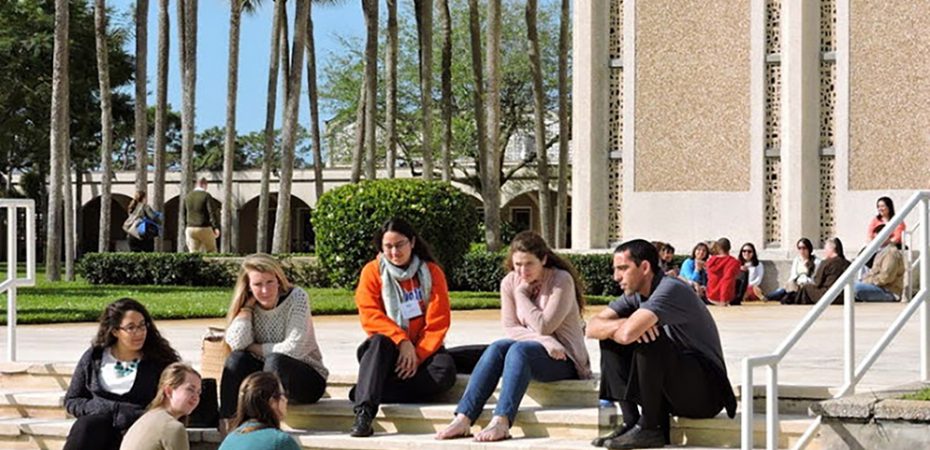The Young Person’s Heart
By their example, deacons can breathe life into the Church
Deacon James Keating Comments Off on The Young Person’s Heart
 Promoting change in moral issues is the large canvas upon which many younger Catholics wish to paint a new faith. But beyond these moral issues, it is their diminishing interest in transcendence itself that may muffle Catholicism’s voice within culture. Jean Twenge, a professor of psychology at San Diego State University wrote, “The waning of private religious belief means that young generations’ disassociation from religion is not just about their distrust of institutions; more are disconnecting from religion entirely, even at home and even in their hearts.”
Promoting change in moral issues is the large canvas upon which many younger Catholics wish to paint a new faith. But beyond these moral issues, it is their diminishing interest in transcendence itself that may muffle Catholicism’s voice within culture. Jean Twenge, a professor of psychology at San Diego State University wrote, “The waning of private religious belief means that young generations’ disassociation from religion is not just about their distrust of institutions; more are disconnecting from religion entirely, even at home and even in their hearts.”
“Even in their hearts” is a key phrase. With this data, clergy might lose hope in ever again filling pews. In the recent past some clergy were content to say, “Well, my people may not be religious, but at least they are open to spirituality and prayer.” The reasoning was we could invite the young back to the fullness of worship by reaching their undimmed interior practice of personal prayer. But even this spark may be flickering out.
If, then, spirituality is not found in the institutional Church, nor preserved in personal prayer, is it being found in the energy born and unleashed in the fascination young people possess for technology? Ultimately, worship for millennials may become something akin to TED Talks. We can see hints of this “religion” each time Apple announces a new product and thousands line up to receive the validation — the blessing — of owning one! Can clergy hope anew that such fascination will burn out because of its own inherent superficiality, leaving the soul searching for substance? Worship of the Father, Son and Holy Spirit may return if individual lives become famished trying to consume meaning where there is only distraction. Will such exhaustion give rise again to a search for the one true God? If so, will there be Catholics embedded in the culture to mediate that search, or will Catholics exist only in the world of private faith?
Right now for those younger Catholics who may have become famished by the superficial diet of technological addiction, the Church offers spiritual ways of renewal that can sustain a substantive human life. Some of these young people may come to see a deacon’s own fascination with the holy as itself fascinating. If so, they may become vulnerable to a word from the deacon as well, a word not carrying what they feared — namely, judgment and intolerance — but a word of freedom, truth and love. These are the only words that can be born from those who commune with Christ as their “daily bread.”
The layperson’s call is literally to incarnate the Faith in the culture. It is for this mission that they are sent from the Eucharist, and it is by way of the joys and crucifixions of this mission that they return to the Eucharist as well. What the laity receive at the Eucharist they become; what they behold in contemplation they become; what they meditate upon in scriptural prayer they become: “This is my body, which will be given for you”(Lk 22:19).
|
Like what you’re reading? Subscribe now.
|
As deacons we offer simple ways to help ground these lives in the Real Presence of Christ. What we emphasize to young Catholics is that secular living alone is too puny for the dignity of the human person. We were created for participation in the supernatural. Unless our lives have mystical roots they will succumb to moralism and partisanship. Instead, we invite young people to listen to the Holy Spirit, inviting them to inhale deeper currents of oxygen than the air moving through “this age” (Rom 12:2).
The times we live in are not ideal for the Church. Christ wishes deacons to be couriers of hope, attending to those who are exhausted by superficiality masquerading as the ultimate good. The exhausted ones will need oxygen as their polluted lungs constrict. We cannot only breath in the “new” and the “next,” we need to draw in the Real. If deacons’ lungs remain open from breathing in the Spirit and breathing out his love, we will lead young Catholics to pure air. In this way, our participation in the circulation of love at the Eucharist can even reach a young person’s heart.
DEACON JAMES KEATING, Ph.D, is the director of theological formation with the Institute for Priestly Formation at Creighton University.





